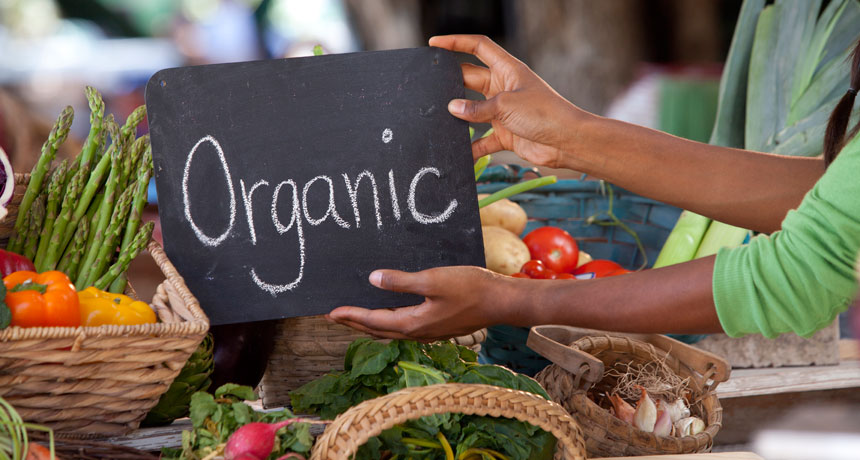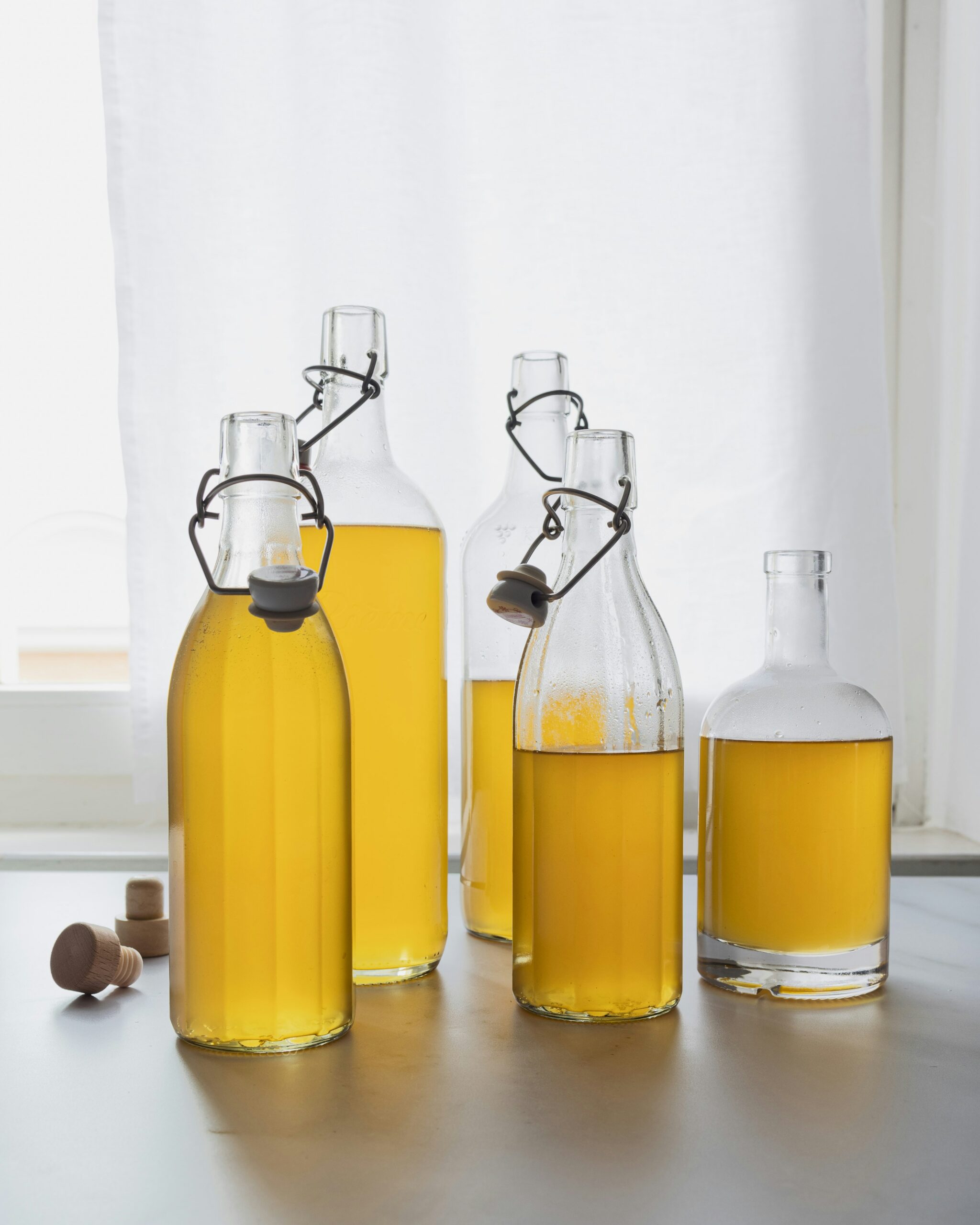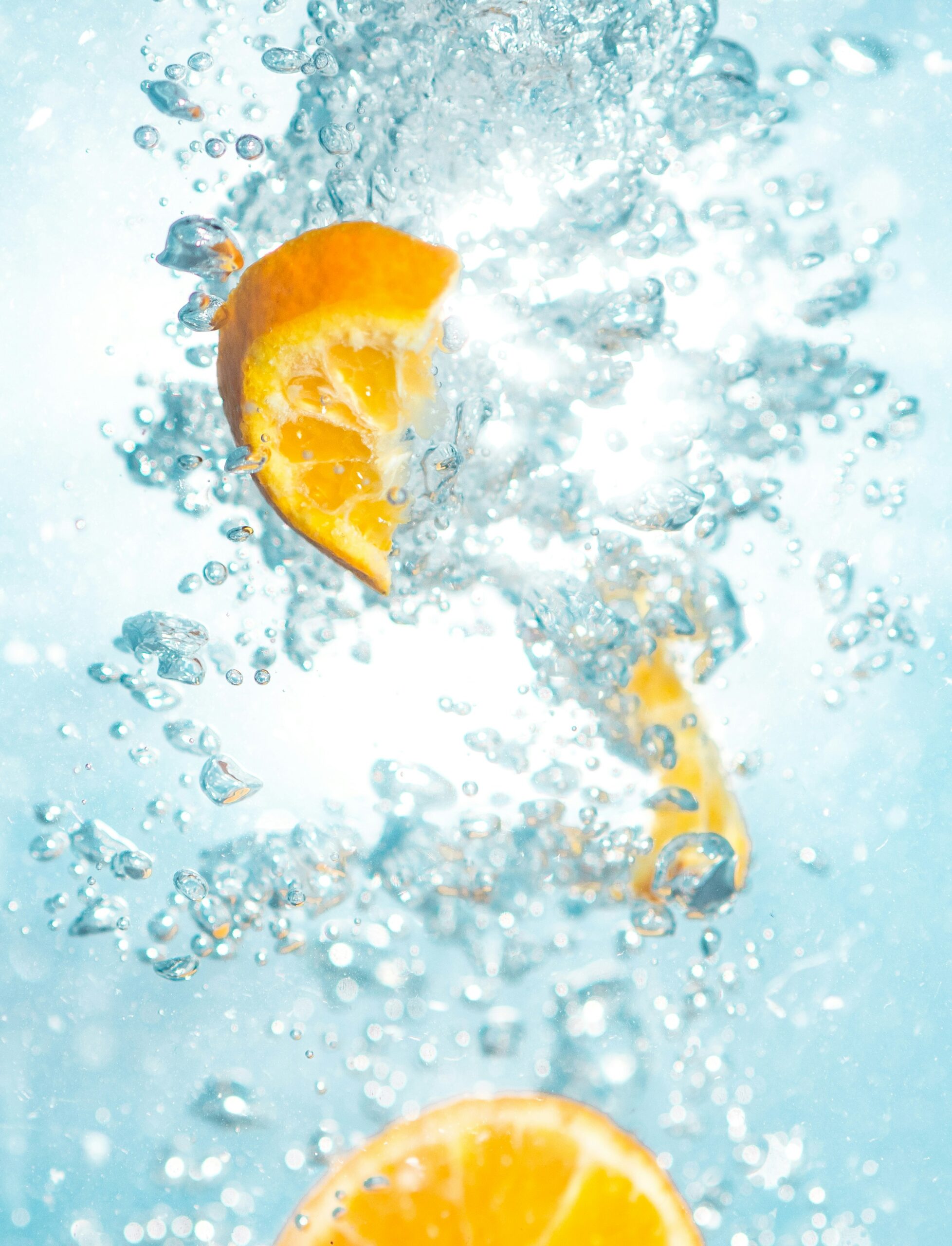
Is organic food really healthier or is just a health food trend? Better yet is it just a way to get you to spend more money on your grocery bill?
Let’s start with what the definition of organic food.
The USDA definition of organic food states that:
Organic food is produced by farmers who emphasize the use of renewable resources and the conservation of soil and water to enhance environmental quality for future generations.

In order to be considered organic meat, poultry, eggs, and dairy they must come from animals that are given any antibiotics or growth hormones.
They way in which organic food is produced it is done so without using most conventional pesticides; fertilizers made with synthetic ingredients or sewage sludge; bioengineering; or ionizing radiation.
Before a product can be labeled “organic,” a Government-approved certifier inspects the farm where the food is grown to make sure the farmer is following all the rules necessary to meet USDA organic standards.
Companies that handle or process organic food before it gets to your local supermarket or restaurant must be certified, too.
The USDA has three standards for organic foods:
- Crop Standards
- Livestock and Poultry Standards
- Handling Standards
Hopefully, things are a bit more clear about what organic food is. Now on to is organic food better. We know it’s more expensive so is it worth it?
You’re going up and down the grocery aisle and you see fruits, veggies, and proteins labeled organic and you ask yourself is it worth the splurge?
If you believe and feel the health benefits of eating organic foods then it is worth it. On the other hand if you feel that there is not enough difference between organic vs non-organic then I would say it may not be worth the extra buck to buy organic. Personally, it is not an all-or-nothing thing.
Don’t feel that you have to buy organic all the time if it’s not something that fits in your budget. I would say prioritize what foods and or products you really feel are best if organic. For example, maybe you don’t really care if your laundry detergent is organic or not. Or maybe you don’t feel its a big deal to by non organic veggies but your chicken and meat are a must on you organic list of foods.

One of the major points of this artical is to give you some insight as to what organic means so that you can decide for yourself if it is something that is important to you. Either way if you chose to buy organic or not it comes down to being a personal choice with no right or wrong answer.
Just to add a plug-in, in favor of organic food, because of the way it is regulated it tends to be more nutritious, safer, and often tastes better.
Pesticides
Organic doesn’t always mean pesticide-free popular belief. However, organic foods, are grown in such a way that they do not use synthetic pesticides like used on most commercial farms.
In very special cases the USDA does allow for the use of synthetic pesticides and under a highly controlled application.
However, most pesticides used in organic farming come from natural sources and are processed lightly if at all.
What it comes down to it there is no real pesticide-free in farming either organic or commercial. Rather it is the type of pesticides uesed that makes the difference.

Finding what works for you is the most important thing.
The Dirty Dozen and The Clean 15
I get that buying organic is not always possible. After all, I know that going all organic can get a little pricy or many the item you are looking for is not in season. The point here is not to add more stress to healthy eating but to give you some healthy options and tips.
The Dirty Dozen is a list of 12 foods that contain the most amount of pesticides and The Clean 15 is a list of foods with the least amount of pesticide contamination according to the Environmental Working Group.
They are an American activist group that specializes in research and advocacy in the areas of agricultural subsidies, toxic chemicals, drinking water pollutants, and corporate accountability.
EWG is a nonprofit organization. The EWG puts out a shoppers’ guide listing the top foods with Dirty Dozen and Clean 15 every year. So keep in mind this list will change from time to time. However, most of the foods will be the same every year on this list.
Good news is that you do not have to buy organic all the time. Don’t pressure yourself to buy just organic or feel guilty if not all the items you buy are organic.
This list from the Environmental Working Group will guide you to which fruits and vegetables contain the most chemicals and which ones are least contaminated.
Use this resource when shopping to help make the best choices for you and your family even if you can’t buy entirely organic foods.
12 MOST CONTAMINATED DIRTY DOZEN
• Apples
• Celery
• Cherry tomatoes
• Cucumbers
• Grapes
• Hot peppers
• Nectarines (Imported)
• Peaches
• Potatoes
• Spinach
• Strawberries
• Sweet bell peppers
• Kale and collard greens
• Snap peas
15 LEAST CONTAMINATED CLEAN 15
• Asparagus
• Avocados
• Cabbage
• Cantaloupe
• Sweet corn
• Eggplant
• Grapefruit
• Kiwi
• Mangos
• Cauliflower
• Onions
• Papayas
• Pineapples
• Sweet peas (frozen)
• Sweet potatoes
But going back to is organic better or not? I figure the easied way to go about this is to list some facts about organic food and let you decide if you see any health benefits of organic food and if the benefits of organic food are worth it to you.
Facts About Organic Food
- Contains fewer pesticides
- Often fresher
- Is GMO-free
- Organic Chickens are not given any antibiotics or vaccines
- Most organic meat is grass-fed meaning cows are allowed to roam around graze.
- Organic meat tends to taste better in part due to its environment.
- More and more research shows that organic food containing fewer and natural vs synthetic pesticides are better for children’s health as well.
- According to some studies, there are higher levels of antioxidants in organic foods which also lead them to taste better.

Hopefully, now I have shed some light on organic food, if organic is better, and some of the benefits of organic food.
Like always from my heart to yours I hope you enjoyed this post and cheers to healthy eating, happy living.






+ show Comments
- Hide Comments
add a comment